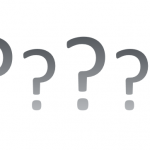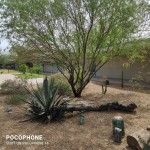In the voice of Bishop T.D. Jakes, “Get Ready! Get Ready! Get Ready!” February is Black History Month, and we all know that Black history is American history. Whether you are teaching online, in-person, or hybrid, the events of 2020 have called us to do honor to the journey of Blacks in America since our placement in these yet to be United States. Here are some resources that may help you bring meaningful and enriching activities into your classroom:
2021 Black History Month Theme: Black Family
If you are not a part of a Black family, this can be difficult to honor. One way is to revisit the themes of Kwanzaa. It is important to note that Kwanzaa is primarily an African American celebration. Persons from other parts of the diaspora and Africa may not be aware of the holiday. Also, although formally celebrated in December, the principals of Kwanzaa should be practiced year-round. Honestly, my family will be celebrating Kwanzaa in February because this will allow us time to focus on and enjoy it. It also goes perfectly with Black History Month. The 7 principals of Kwanzaa which are celebrated in the Black family are:
- Umoja (unity)
- Kujichagulia (self-determination)
- Ujima (collective work and responsibility)
- Ujamaa (cooperative economics)
- Nia (purpose)
- Kuumba (creativity)
- Imani (faith)
Events and Celebrations
COVID continues to make in-person gatherings a no-no. So, let’s take advantage of the online celebrations that will be available. They can be used to enhance lessons, virtual class field trips, and a resource for projects and assignments.
- Black History Month Virtual Festival
- Today in Black History
- Black History Today (great moments in Black history)
Beyond Dr. Martin Luther King, Jr
Black history is found in every part and portion of life. We are represented by more than Dr. Martin Luther King, Jr. and since his birthday was celebrated in January, make a point to highlight new faces this year. There are so many resources to be found in bookstores and on websites. A current resource that I find helpful for today’s times is the February 2021 edition of The Oprah Magazine. She dedicated the entire edition to all things Black history! This is a great go to for class resources and information.
Did you know that Arizona has a Black owned bookstore? I did not. I found it in Oprah’s magazine. It’s called Grassrootz Bookstore (Phoenix, AZ). They even have a community library! Check them out!
The Big Screen
We should all be aware that Black Americans and other African descendants typically dominate sports and entertainment. It is usually easier to find viewing material for older students. Here are some younger kid friendly modern additions that may add a new level of appreciation for Black contributions, creativity, and ingenuity. Verify ratings and secure school/parent approval before showing or recommending student viewing.
- The Boy Who Harnessed the Wind (2019) – Themes include family, creativity and resourcefulness, politics, science, determination (available on Netflix)
- Black is King (2020) – Beyonce; Visual album based on Disney’s The Lion King. Themes include self-identity, heritage, self-expression, music, dance, community, good vs. evil, family, discovery (available on Disney+)
It is my hope that these resources will help you bring Black history into your classroom this February. From there, I hope you will be encouraged to bring us into your year long conversations and lesson planning as natural contributors, problem-solvers, and creators.
Fun Fact: “Lift Every Voice and Sing” (1899), the National Black Anthem, was a poem written by NAACP leader James Weldon Johnson. It was sung for the first time in 1900 during a Lincoln celebration by 500 students at the segregated school where Johnson was the Principal.










Comments 2
Thanks for the fresh resources!
You are welcome! Enjoy!